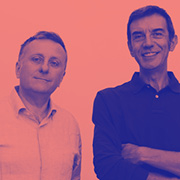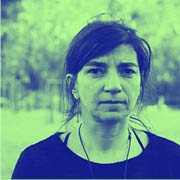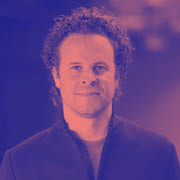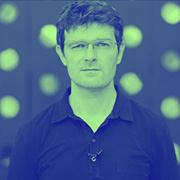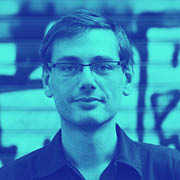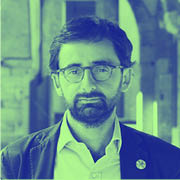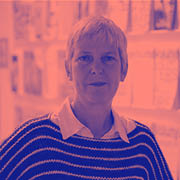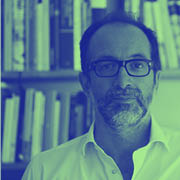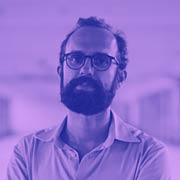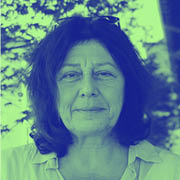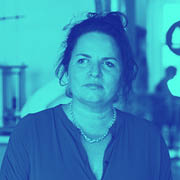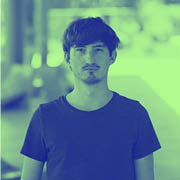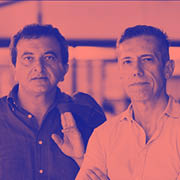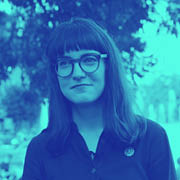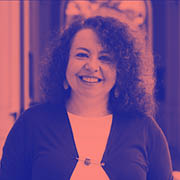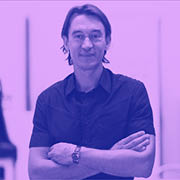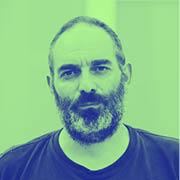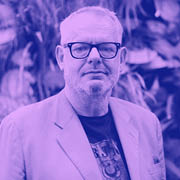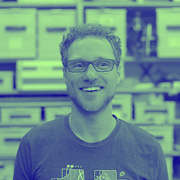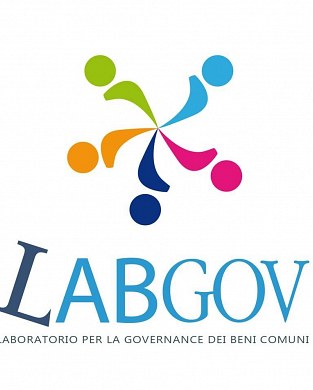DIRECTOR, LabGov
CHRISTIAN IAIONE
Christian Iaione is an associate professor of public law at Guglielmo Marconi University of Rome, fellow of the Urban Law Center at Fordham University (US) and visiting professor at LUISS Guido Carli where he currently directs LabGov - a laboratory for the governance of the commons. Christian has published several articles across various fields focussing on public and administrative law in relation to land use, public contracts, public goods and the commons.
TERMS
ecosystems
markets
platforms
infrastructure
NEW ECOLOGIES
ECOSYSTEMS
Everything that has to do with nature, ecosystems and the diversity they entail - especially when these ecosystems occur within the city. They guarantee biodiversity and I see this as a metaphor for the city, because you also need diversity in human anthropological terms in order to have a more prosperous, more efficient and richer city.
URBAN ASSETS
MARKETS
My second term is markets, because I think that urban assets within the city, especially those that are vacant, abandoned or unutilized, provide the opportunity for new markets and entrepreneurial ventures to arise, bringing new types of jobs to cities. In developed countries, where you have conflict between different social classes and increasing inequality, you have people living precariously. They are young people and people that are being expelled from a changing job market and looking to stay in the city. In order to avoid expulsion from the city, there is the potential to put underutilized buildings and assets to use. This provides the necessary arena for different urban tribes to use these spaces to promote themselves, cultivate their talents, their passions and create new economies.
DIGITAL TOOLKIT
PLATFORMS
Digital platforms are essential in enabling collaboration and collective action in the city. They are also important in creating an awareness of the differing sensibilities, cultures and languages that are present throughout the city. We currently use digital platforms in a very ‘unsmart’ manner. We use them primarily to map things rather than to enable common action between different urban actors. We are missing the opportunity to use digital platforms to create new ventures or activities within the city and to facilitate a new democratic discourse, which can be cultivated through technology.
NEW COLLECTIVES
INFRASTRUCTURES
I chose infrastructures in relation to new collectives because I think that collectives can be seen as new forms of infrastructure. The city needs to have new ways to connect people to the commons, especially the urban commons. We should understand infrastructure as a way to reach a common goal - transportation infrastructure for example, is quite a literally way in which to bring a community from one point to another. Urban collectives are a way to bring urban communities from the paradigm of the 20th century to the paradigm of the 21st century – one centered around the idea of the ‘co-‘: of collaboration, commoning, cooperation, coproduction and most importantly, the co-creation of the city. To do this, you need the right infrastructure.
INTERVIEWED BY
GIANPIERO VENTURINI
Cristian emphasises the need to focus on common approaches to generating language and the need to foster an experimental process to commons based governance grounded in mapping, protoyping and testing.
link
LabGov
‘Laboratory for the Governance of the Commons’
link
Luis Guido Carli University - LUISS
‘luiss.edu’
GV:
Is there a relation between the four terms and is there any term that encompasses all four?
CI:
Commons is the term linking all the others. Commons is about sharing and collaborating, about urban collectives and communities that come together in order to realise existing resources and coproduce new ones. The kinds of infrastructure that arise out of this are the governance structures that you can use to support people to cooperate further. This idea of cooperation as an alternative to competition - as a social technology that can bring change - is the kind of language that we need to better develop, embrace, and understand.
GV:
Is it important to build a common multidisciplinary vocabulary today and if so, why?
CI:
We are living in a new Babylon where to realise a common language is almost a utopian dream. It’s an ideal - a strategy. Every utopia is a strategy that is worth trying, because it gives us a horizon and a vision to strive for, however I’m skeptical about the creation of a common language. This is because within cities, we have urban tribes and urban populations that like to speak different languages and different vocabularies. We live in an age in which new words appear and everybody feels entitled to produce new words. It is an age of transition where old, unified schemes are failing so I see the idea of a common vocabulary as utopian. The issue is that, by the time you establish a common, shared vocabulary, that vocabulary has already changed to keep pace with the accelerating speed of innovation, of collaboration and of human progress. So instead of a common vocabulary, perhaps what we really need is a common way to produce language.
So instead of a common vocabulary, perhaps what we really need is a common way to produce language.
interview
CRISTIAN IAIONE
'The City as Commons'
interviewed by Michel Bauwens
link
CITIES IN TRANSITION
'citiesintransition.eu'
GV:
Do you have any anecdotes relating to a misunderstanding which arose between other disciplines from having a different set of meanings for common terms?
CI:
Misunderstandings often arise when I am trying to explain these commons-based governance devices and new ways in which to govern common resources to the communities I work with. They are often perceived as a way of introducing a new form of privatization, as if the same community for which I was working for perceived itself as the private, rather than the common. So it seems clear that the idea of working across boundaries and new ways of conceiving private, public and the common Is, in terms of language, in need of refinement. For me, it was unexpected that the community would think of itself as a private actor and defend public management. I think public institutions have a central role as enablers, supporting the collective action of people, of communities and collectives, but I don’t think the commons and communities should be considered private actors.
Lab-Gov is an action research and ‘learning-by-doing’ group that aims to develop new forms of governance and entrepreneurial ventures in cities that are commons based - that are structurally cooperative and collaborative. The goal is to produce new regulations, laws and organisations with the help of existing knowledge institutions like universities, collectives and governments. We are looking to create processes that can, through experimentation and prototyping, generate these governance devices. We actually involve students, activists and practitioners together with civil servants in action research projects - real projects on the ground - to develop and apply design principles of governance for the commons in the city. We reference Elinor Ostrom, Nobel Prize winner for the economy, through applying his design principles to the city, to help in constructing both urban and knowledge-based commons and producing legal frameworks, institutions and economic ventures from below.
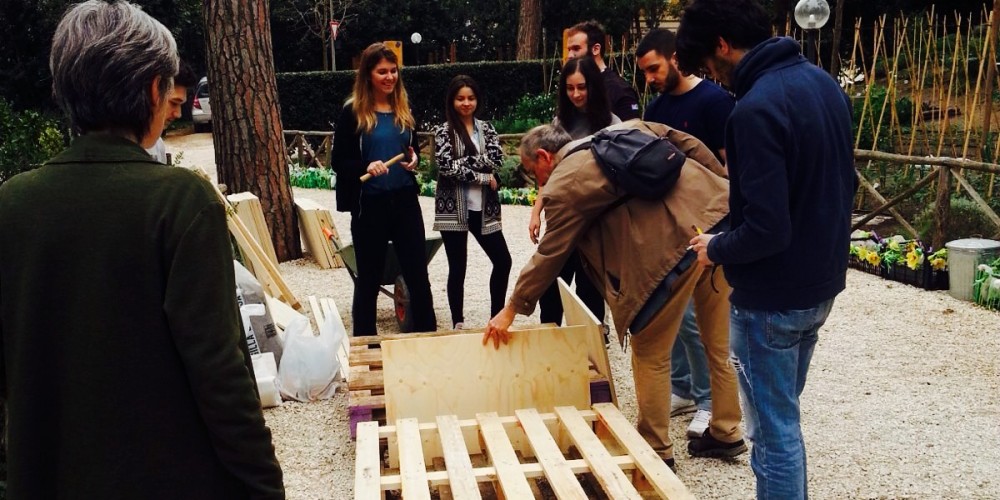

paper
CRISTIAN IAIONE & SHEILA R. FOSTER
‘The City as Commons’
CI:
We developed this co-city ‘protocol’ that we are applying across various Italian, EU and US cities in order to have a universal approach through which every city can begin to realise the different and diverse governance devices they need. We emphasis the protocol or approach over the outcome as what is useful to one local context is not necessarily suitable to others.
We emphasis the protocol or approach over the outcome as what is useful to one local context is not necessarily suitable to others.
interview
CRISTIAN IAIONE
‘Bologna Co-City Protocol’
CI:
Institutional diversity and iteration are other concepts that we embrace, believing that the kinds of processes and devices that we have designed should be iteratively developed over time. We are currently working in Bologna, Mantova and Rome and are establishing experimentation grounds in Amsterdam and New York. In these cities, we create spaces for the agglomeration of knowledge about the commons and work with various parties in developing mapping exercises. From these mapping exercises, looking at public policies and the power structures that interfere with commons governance, we start extracting guidelines that then become the basis of prototyping new policies and regulations that the city government can model and evaluate. So the protocol comprises a number of key steps: knowing, mapping, prototyping, testing and modeling.
GV:
Finally, how would you summarise the key differences in Lab-Gov’s approach to relating to the city compared to previous models of engagement?
CI:
The main difference is that Lab-Gov and the co-city project embrace an experimentalist approach to the creation of new governance tools rather than the usual approach of traditional representational democracy. The idea of having just participatory spaces, participatory processes is one way to go. The other way is to actually do, to practice, experiment, and reach the objectives of policy documents through testing rather than solely discussion.
